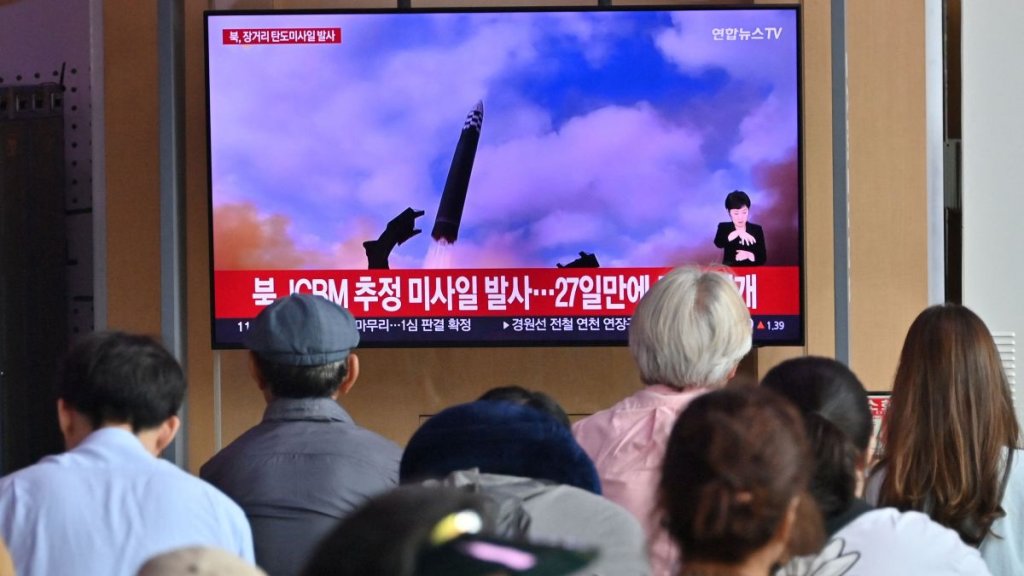North Korea test-fired a suspected intercontinental ballistic missile (ICBM) on Wednesday (July 12).
The missile may have been a new road-mobile Hwasong-18 ICBM, the Associated Press (AP) reported, citing experts. Japanese and South Korean news agencies first reported the test-firing, citing their nations’ respective militaries.
The ICBM launched from the region around North Korea’s capital, Pyongyang, at 10 a.m. local time (0100 GMT) on July 12, reaching a maximum altitude of 3,730 miles (6,000 kilometers) before landing in the sea between the Korean Peninsula and Japan.
Related: North Korea’s rocket and missile program (photos)
Japanese Chief Cabinet Secretary Hirokazu Matsuno was quoted as saying the vehicle flew for 74 minutes, making the longest recorded flight for a North Korean ballistic missile.
The regime launched a liquid-fueled Hwasong-17 ICBM last year that flew for 71 minutes. North Korea’s previous ICBM tests have reportedly been liquid-fueled missiles.
The development of a solid-fueled ICBM would mean North Korea can launch long-range attacks on shorter notice, as solid-fueled rockets need less launch preparation time than their liquid-propellant counterparts. Solid rockets can also be more easily moved and are thus harder to track.
The test follows North Korea threatening “shocking” consequences as a response to what it described as reconnaissance activity near its territory conducted by the United States, the AP noted.
The United Nations has imposed a range of sanctions on North Korea in relation to its weapons development programs. Despite this, the country has ramped up both its testing campaign and its capabilities in recent years.
“We strongly condemn North Korea’s launch of a long-range ballistic missile as a grave provocative act that harms the peace and stability of the Korean peninsula and the international community and is a clear violation of UN Security Council resolutions,” the South Korean Joint Chiefs of Staff said in response to the test, the BBC reported.
The AP reported that some experts believe Pyongyang may increase missile and weapons testing in the runup to the 70th anniversary of the signing of an armistice that ended the Korean War. That signing occurred on July 27, 1953.

